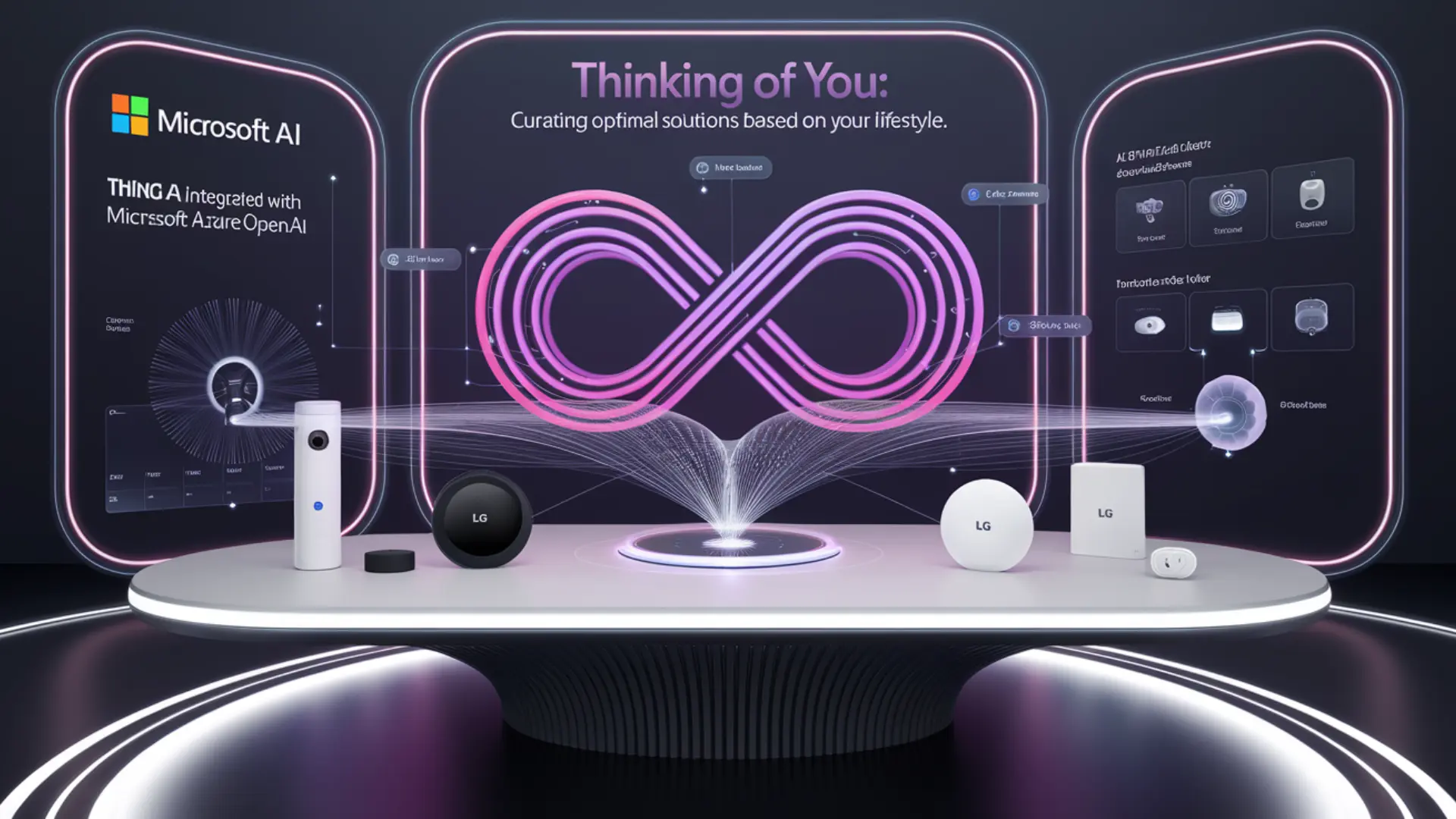Affectionate Intelligence, yeah Technology is no longer just a tool for efficiency or convenience; it has evolved into something far more personal. The concept of “affectionate intelligence” is the latest frontier, where devices aim to simulate emotional awareness, empathy, and even connection. Home tech companies are increasingly embedding these capabilities into their products, promising a future where our devices understand us as well as serve us. But as enticing as this vision is, it comes with important questions: Should we embrace this trend, or are we opening a Pandora’s box of ethical dilemmas?
What Is Affectionate Intelligence?
Affectionate intelligence refers to technology designed to perceive, interpret, and respond to human emotions. This goes beyond simple voice commands or pre-programmed responses; these systems aim to adapt their interactions based on emotional cues such as vocal tone, facial expressions, or even physiological signals. The goal is to create a deeper, more human-like relationship between users and their devices.
For instance, imagine a smart speaker that can detect frustration in your voice and respond more soothingly, or a smart home system that notices you’re feeling down and adjusts the lighting and music to lift your spirits. These capabilities are powered by advances in artificial intelligence (AI), machine learning, and natural language processing (NLP).
Companies like Amazon, Apple, and Google are at the forefront of this trend. Alexa, Siri, and Google Assistant are no longer just virtual assistants; they are evolving into emotional companions. Smart home products like thermostats and security cameras are also beginning to incorporate emotional intelligence, promising to make our living spaces more attuned to our moods and needs.
Why Are Companies Investing in Emotional Tech?
The rise of affectionate intelligence isn’t accidental. It is the result of strategic efforts by tech companies to deepen user engagement and differentiate themselves in a crowded market. Here are some key motivations behind this trend:
- User Engagement: Emotional interactions encourage people to use devices more frequently. A smart assistant that “understands” you can foster a sense of trust and dependency.
- Customer Loyalty: When devices create an emotional bond with users, it becomes harder to switch to competitors. This is especially true when emotional data is used to create highly personalized experiences.
- Monetization Opportunities: Emotional data is a goldmine for advertisers and marketers. By understanding how users feel, companies can deliver hyper-targeted ads and product recommendations.
- Market Differentiation: As traditional smart devices become commodities, emotional intelligence offers a way to stand out by adding a “human” touch to technology.
The Promises of Affectionate Intelligence
Proponents of affectionate intelligence argue that it can revolutionize how we interact with technology, making it more intuitive, accessible, and even therapeutic. Let’s explore some of the potential benefits:
- Enhanced Convenience: Devices with emotional awareness can anticipate your needs. For example, a coffee maker that detects your morning fatigue and adjusts its brewing strength accordingly.
- Improved Accessibility: Emotional tech can be particularly beneficial for people with disabilities or mental health challenges. For instance, a device that recognizes signs of anxiety could offer calming exercises or connect the user to support resources.
- Personalized Experiences: By understanding your preferences and emotional state, devices can create highly tailored interactions. This could range from recommending movies that match your mood to suggesting the perfect meal for dinner.
- Humanized Technology: Emotional intelligence bridges the gap between humans and machines, making technology feel less alien and more relatable. This can enhance user satisfaction and comfort.
- Potential for Mental Health Support: Devices with affectionate intelligence could act as first responders for mental health issues, providing comfort or connecting users to professional help when needed.
The Ethical and Practical Concerns
Despite its promise, affectionate intelligence raises significant ethical and practical challenges that cannot be ignored. While these technologies offer convenience and personalization, they also come with risks that could outweigh the benefits.
1. Privacy and Data Security
To understand emotions, devices need access to highly sensitive data, such as voice recordings, facial expressions, and even biometric information. This level of data collection raises serious privacy concerns:
- How is this data stored? Emotional data is deeply personal, and any breach could have devastating consequences.
- Who has access to it? Companies and potentially third-party advertisers could exploit this data for profit.
- How is it used? Even with user consent, the potential for misuse—such as manipulating emotions to drive sales—is troubling.
2. Accuracy of Emotional Detection
While AI has come a long way, it’s far from perfect. Misinterpreting emotions could lead to frustrating or even harmful interactions. For example, a smart assistant might misinterpret frustration as anger, leading to an inappropriate response.
3. Manipulation and Exploitation
Devices that understand emotions can be used to manipulate users. For instance, a smart assistant could recommend products or services when you’re feeling vulnerable, exploiting your emotional state for profit.
4. Emotional Dependence
As users develop emotional bonds with their devices, there’s a risk of over-reliance. This could reduce real-world interactions and stifle human relationships, leading to social isolation.
5. Ethical Implications for Children
Children are particularly impressionable and may form attachments to devices with affectionate intelligence. This raises questions about how these technologies might shape their development and understanding of relationships.
Case Studies: Emotional Tech in Action
To understand the implications of affectionate intelligence, let’s look at some real-world examples:
- Amazon Alexa: Alexa’s “Hunches” feature uses context to suggest actions. For instance, if you usually turn off the lights at a certain time, Amazon Alexa might ask if you’d like to do so. While convenient, this feature also highlights the extent to which devices track user behavior.
- Replika: This AI chatbot is marketed as a “friend” that listens and provides emotional support. While some users find it therapeutic, others question the ethics of replacing human interaction with AI.
- Google Nest: Nest’s ability to “learn” your preferences and adapt its behavior showcases the potential for emotional tech. However, the data it collects to achieve this raises privacy concerns.
Should We Buy Into the Hype?
The allure of affectionate intelligence is undeniable. Who wouldn’t want a device that not only works seamlessly but also “understands” them? However, it’s essential to approach this technology with caution and critical thinking.
What to Consider Before Embracing Emotional Tech:
- Transparency: Demand clear information about how your data is collected, stored, and used.
- Consent: Ensure that you have control over what emotional data is shared and with whom.
- Boundaries: Set limits on how much emotional intelligence you want your devices to have. Not every interaction needs to be personalized.
- Alternatives: Consider whether you’re sacrificing meaningful human interactions for the convenience of emotional tech.
The Role of Regulation
Governments and regulatory bodies must step in to ensure that affectionate intelligence is developed and deployed responsibly. This includes:
- Data Protection Laws: Strengthening laws to protect emotional data and ensure transparency.
- Ethical Standards: Establishing guidelines for how emotional tech can be used, especially with vulnerable populations like children.
- Accountability: Holding companies accountable for breaches or misuse of emotional data.
Final Thoughts
Affectionate intelligence represents a bold new chapter in the evolution of technology. By blending functionality with emotional awareness, it promises to make our devices more intuitive, accessible, and human-like. However, this innovation comes with significant risks, from privacy concerns to ethical dilemmas.
As consumers, we must navigate this new frontier carefully, balancing the benefits of emotional tech with the need to protect our privacy and autonomy. By demanding transparency, setting boundaries, and advocating for responsible innovation, we can ensure that artificial intelligence enhances our lives without compromising our values.
In the end, the question isn’t just whether we should fall for affectionate intelligence but how we can shape its development to serve humanity responsibly. After all, technology should work for us—not the other way around.
Here is our blog about AI Talent Wars, and Strategies to Secure Top Professionals

Jahanzaib is a Content Contributor at Technado, specializing in cybersecurity. With expertise in identifying vulnerabilities and developing robust solutions, he delivers valuable insights into securing the digital landscape.








